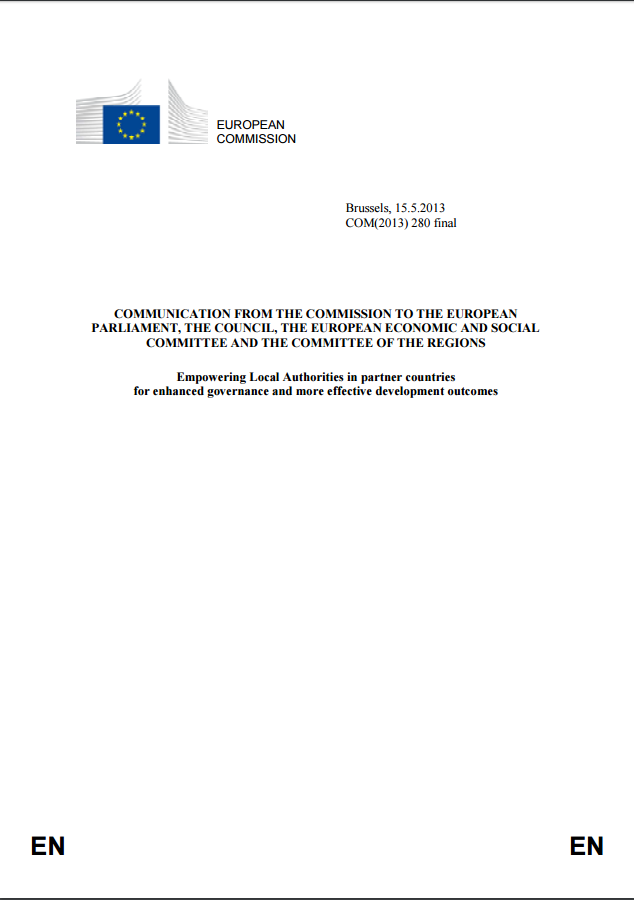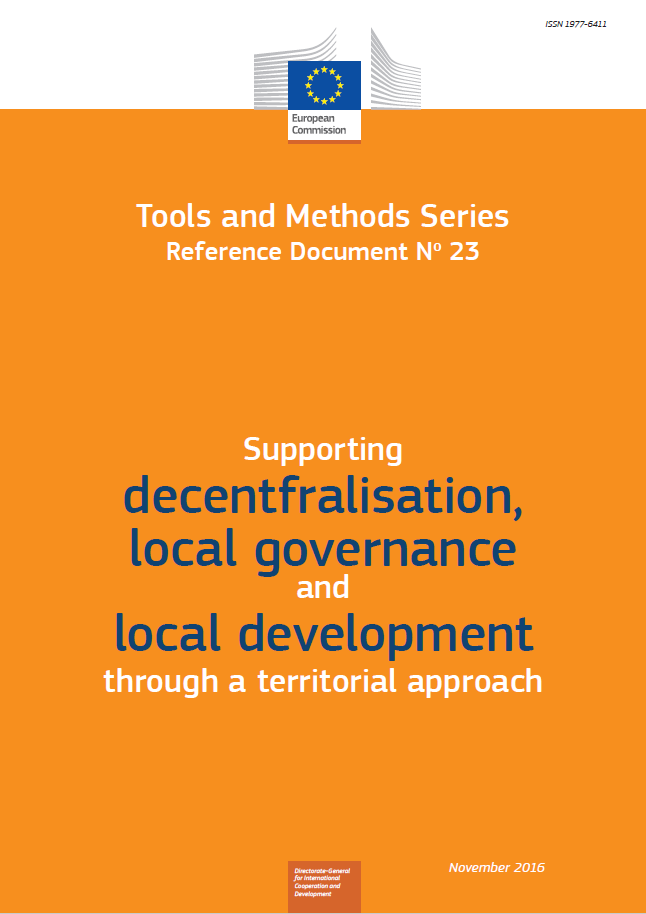The 2016 EU guidance
Supporting Decentralization, Local Governance and Local Development through a Territorial Approach
Over the last decade, a shift in the understanding of decentralisation has occurred. There is a clear move beyond the rather narrow concern of reforming the state to ensure efficient resource allocation.
The focus now is more on the actual political drivers of decentralization reforms and their ability to help unleash the potential of territories in order to effectively fight inequality, create wealth and jobs, and tackle other pressing development challenges.
This shift has, in turn, led to a greater acknowledgement of the proactive development role that local authorities (LAs) could play if empowered to act as political entities on behalf of their constituencies.

- the role of LAs as key representatives of local polities in a given territory, not just managerial agents of the state;
- the instrumental value of decentralisation as a vehicle to create space for developmental LAs

This document is the product of a broad consultation process involving different units in the European Commission’s Directorate-General for International Cooperation and Development, other European Commission directorates, EU delegations as well as various sources of external expertise. Several seminars were organised at EU Headquarters and in various regions with a view to ensuring a co-production process in formulating this guidance.
|
To go further... read this
To go further... watch this
|
